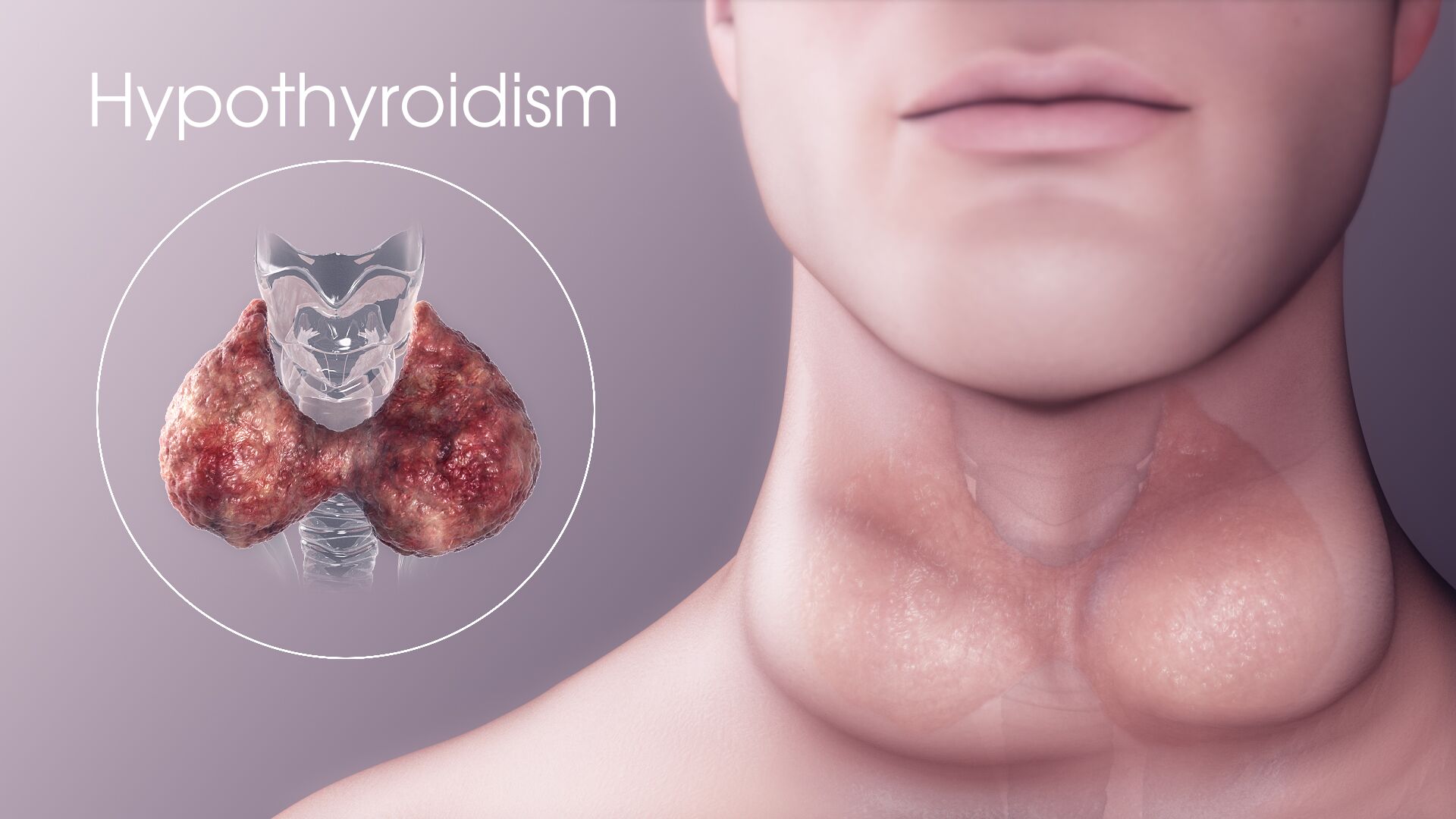Hypothyroidism is a condition that occurs when our thyroid gland does not produce enough thyroid hormone. It is a disorder of the endocrine system. The thyroid gland is responsible for releasing hormones that regulate many body functions and it plays a very important role in the body’s growth, development and metabolism. Insufficient hormones cause our body functions to go out of balance. Women are more likely to develop hypothyroidism than men. It usually affects people above the age of 60. It is also known as underactive thyroid.

3D Medical Illustration - Hypothyroidism
Causes
There are a number of reasons for an underactive thyroid gland. An autoimmune disease known as Hashimoto’s thyroiditis is the most common cause. Taking medication that affects the thyroid, family history of thyroid condition, Iodine deficiency and pregnancy may also cause hypothyroidism.
Symptoms
The symptoms of hypothyroidism usually progress very slowly and they may be different for different people. However, the most common symptoms are weight gain, fatigue, depression, constipation, sensitivity to cold, increase in cholesterol levels, dry skin, joint pain and thinning hair.
Diagnosis and Treatment
Hypothyroidism is diagnosed by a TSH (Thyroid stimulating hormone) blood test. A Thyroxine level test called T4 is also used for confirmation of hypothyroidism. It is usually a lifelong condition. Treatment involves taking a daily dose of levothyroxine. By taking levothyroxine, adequate levels of thyroid hormone are supplied to the blood and hence the metabolism and other bodily functions are better regulated. Tests need to be carried out to adjust the dose of levothyroxine at regular intervals.
As hypothyroidism is fairly common, clinicians have seen that a healthy lifestyle with nutritious diet and moderate exercise helps manage it.
Disclaimer: The information in no way constitutes, or should be construed as medical advice. Nor is the above article an endorsement of any research findings discussed in the article an endorsement for any of the source publications.
References:
- Hypothyroidism
- Hypothyroidism Slideshow
- https://www.everydayhealth.com/hypothyroidism/guide/
- Everything You Need to Know About Hypothyroidism
Hypothyroidism
An underactive thyroid gland that does not produce enough thyroid hormone is a medical condition called Hypothyroidism. The thyroid is a small, butterfly-shaped gland situated at the base of neck, and is responsible for synthesizing hormones that regulate metabolism. Lack of thyroid hormone production, hence, causes the body’s functions to slow down. Read More..
Obesity
When excess fat accumulates in the body tissues and begins to negatively impact the overall health of the person, the medical condition is known as obesity. Body mass index or BMI value is widely used as an indicator of obesity. In general, when the BMI crosses 30 (kg per sq meter), the person is said to be obese. Obesity is directly associated with cardiovascular diseases, type 2 diabetes, arthritis, and even certain types of cancer. Read More..
Organs affected by Down Syndrome
Down syndrome is a condition of trisomy of the 21st autosome. In many incomprehensible ways, this genetic disorder continues to shorten lifespans by manifesting into a spectrum of abnormalities. People with Down syndrome experience an early onset of several conditions that come with aging. Scientists believe that the extra copies of genes are responsible for developmental and health issues. Read More..








